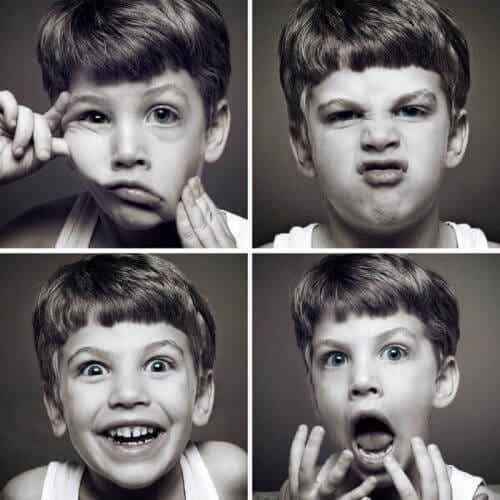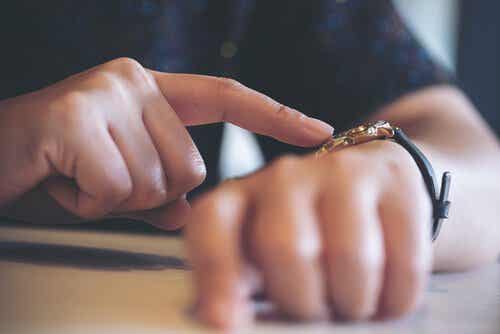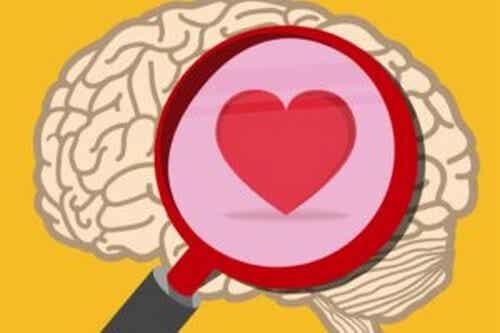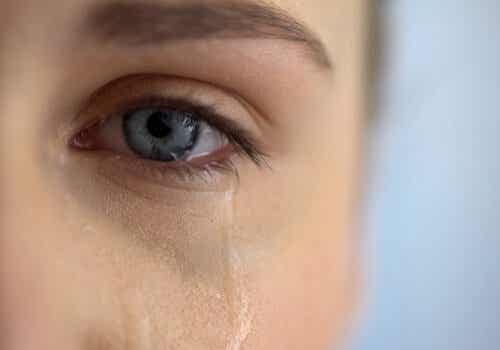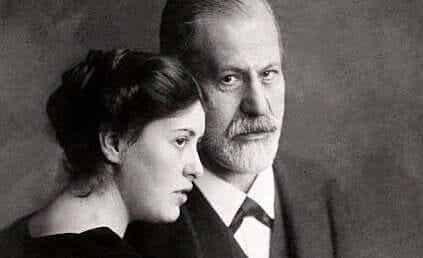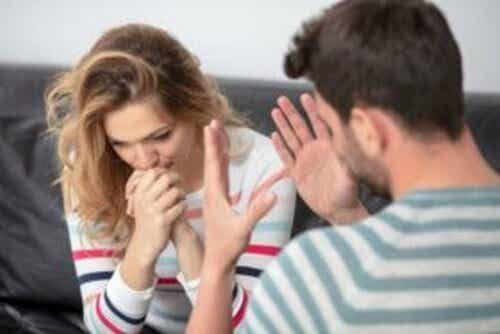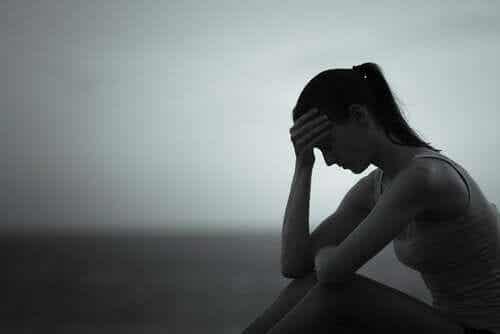Unconscious guilt is almost always related to events or situations towards which there is a taboo or are perceived as unbearable.

Last update: April 16, 2019
Unconscious guilt manifests itself many times with depression and anxiety. Depression implies a feeling of inadequacy towards oneself and the world. At the base of the anxiety there is instead the prediction of harm or punishment.
Guilt is a complex feeling, which is influenced by several factors. It manifests itself as remorse, blame and a feeling of personal humiliation.
However, he is not always conscious. Experiences are experienced that induce unconscious guilt, that is, an accusation against oneself. It generates discomfort, but we don't notice it.
Unconscious guilt is almost always related to events or situations towards which there is a taboo or which are perceived as unbearable. Sometimes it is about actions that have been committed, at others it is simply connected to thoughts or desires that are consciously rejected.
"As with debts, so with guilt it remains only to honor it."
-Jacinto Benavente-
On other occasions, unconscious guilt is associated with aggression or sexuality. You have feelings or desires that are at the same time unbearable. For example, an excess of hatred against a loved one or an incestuous desire.
We do not recognize unconscious guilt, but we repress it and this is precisely the worst aspect. However, always unconsciously, the guilt returns and manifests itself as self-sabotage, anxiety, melancholy and even with criminal behaviors implemented to obtain punishment.
Manifestations of unconscious guilt
Malaise
One of the most common forms of unconscious guilt is constant malaise with oneself.
Psychoanalyst Franz Alexander points out that the basic content of guilt is "I'm not a good person, I deserve punishment". Much more than just a self-esteem problem.
This type of guilt leads to a constant rejection of oneself. Nothing the person does satisfies him completely. She is hypercritical of herself and deprecates her own thoughts, feelings and actions. Very often this results in depressive states and poor or poorly performing lives.
When this picture is configured, we speak of "depressive guilt". In extreme cases it leads to a paralysis of life. There is such a feeling of humiliation that the person ends up feeling that they do not even deserve life. He can also become overly irritable and the victim of a constant bad mood.
Unconscious guilt and anxiety
One of the most frequent manifestations of guilt is anxiety and, more specifically, anguish. This is an imprecise and intense concern. As if something terrible was about to happen, but it is unknown where the threat comes from and why the catastrophic event would occur.
This type of guilt is called "persecutory guilt". Sometimes it is invasive and makes the person anxious.
It usually presents a feared object that becomes persecutory, for example an illness, old age, a deity, etc. In these cases, much of the person's behavior is aimed at appeasing the object, or defending against it.
In extreme cases, this feeling leads to crime. This crime does not seek transgression, but a punishment.
Fantasy and guilt
As pointed out at the beginning, guilt is a complex feeling, on which several variables intervene. Family, cultural, religious values (or anti-values) have a great impact.
Someone with a very conservative upbringing may come to think that having sexual desires is ignoble.
Many people warn of unconscious guilt for episodes that occurred in childhood and over which they had no control. For example, for discussions between parents, abuse of which they have been victims, experiences of childhood sexuality.
Sometimes you feel unconscious guilt just for being alive. "If I hadn't been born, maybe my mother could have ended her career and today she wouldn't complain about it." Other times the blame is manifested for the difference with respect to others. There are several experiences that confirm this.
Feeling guilty and taking responsibility for mistakes are two very different realities. The first is only to make the person feel bad. A spiral of self-torture begins which leads to psychological deterioration. The second is a conscious and adult way of evaluating one's behavior and, above all, accepting it.







